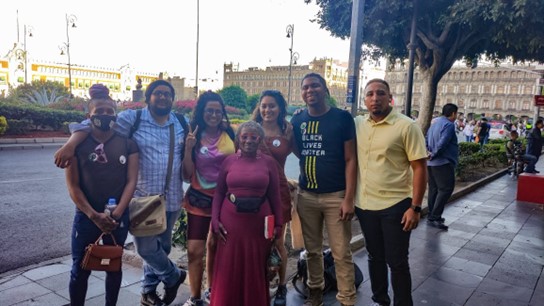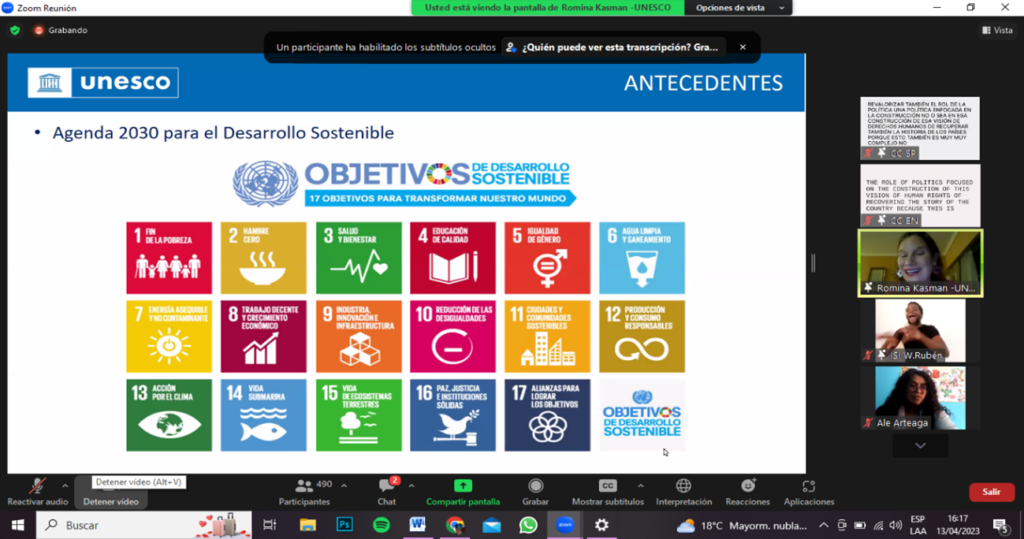United Nations
New York-May 2023
Decenio Internacional para Personas Afrodescendientes
Afromexican Center Studies Tembembe
By: Alejandra Tentle (Alejandra Aguilar)
I am Alejandra Tentle, I am an afroindigenous, afromexican woman. Daugther of Verónica Ortíz, granddaughter of Enedina Ortíz and Nohemí Favila, Great granddaughter of Julia Bautista and Manuela Tentle. I learned this way of presenting myself from Isaura García, an incredible 12-year-old girl who enriches the Afro-Mexican movement through her activism. At her young age, Isa has her ancestry very well defined and in this way she represents it. Through her example, I reinforce my commitment to collaborate with our Afro-descendant children and youth to develop specific changes for them.
From the Tembembe Center for Afro-Mexican Studies, the World Campaign for Education, the Latin American and Mexican Campaign for the Right to Education, we know that education is a crucial point. We believe that a transformation is necessary in the way not only in which our history is told, but also in the restructuring of the educational system, seeing it from a horizontal perspective that does not hierarchize and that prioritizes the needs of the context in which childhoods develop from anti-racist, anti-class, anti-pratiarchal and decolonial perspectives and not those of the capitalist/classist/racist system.
To achieve this, we must consider the decolonization of the educational budget as an act of justice and reparation, the use of financing prioritizes the needs of the capitalist system and not that of the population, a forceful action would be the cancellation of the external debt from the investment in ethno-educational processes, pointing out the development of inclusive materials that respond to multiculturalism and actions to disaggregate data that make visible our needs and that of children, understanding the heterogeneous differences that we live in the urban, periphery or rural areas of the country.Finally, we invite you to open spaces for children in places like the one we find ourselves in today, since listening to their voices, perspectives and experiences will help us improve the way we work on issues that directly concern them.
Much is said about working on agendas for the generations to come, but we do not realize that they already have a clear and active political participation, so listening to them will help us understand their needs and concerns to develop actions that also take into account to Afro-descendant children and adolescents.
Children are not the future; they are our present existing and resisting.
Thank you.


